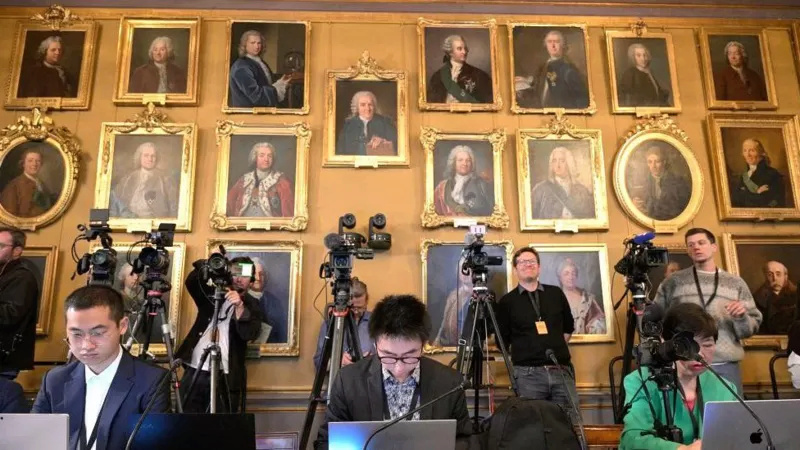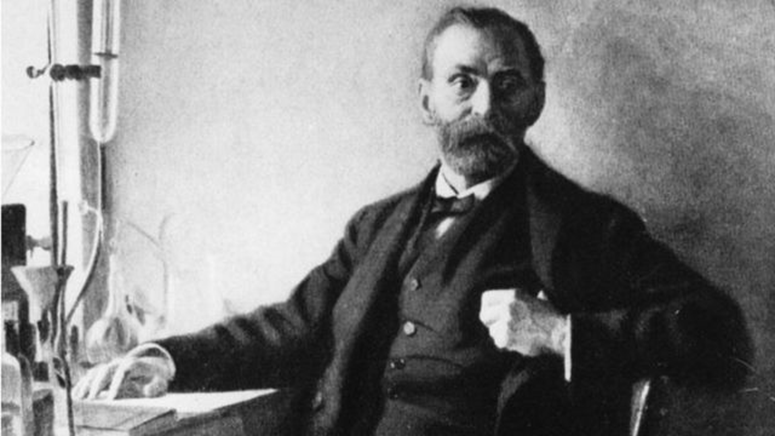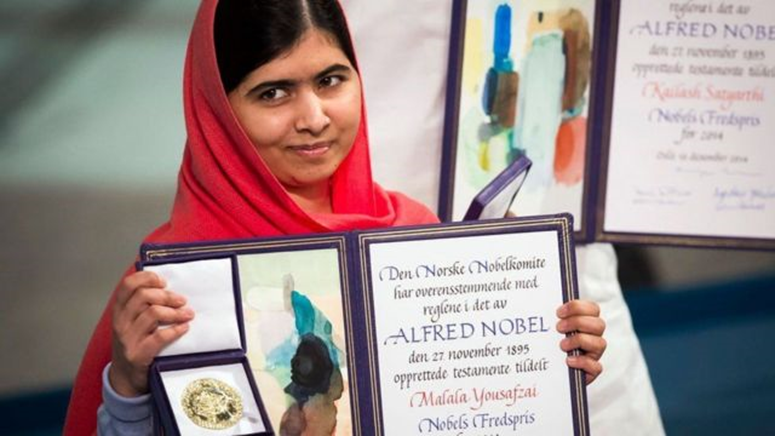This year's Nobel Prize season has kicked off, and most of the winners will be announced this week.

The Nobel Peace Prize is awarded "to those who have done their utmost to strengthen the bonds of brotherhood between nations, to demobilize armies or reduce their standing numbers, and to establish bodies or conferences to promote peace."
What are the six Nobel Prizes?
The Nobel Prizes are a series of annual prizes in the fields of physics, chemistry, medicine, literature and peace, given to those who have "done the greatest benefit to humanity" during the past 12 months.
The previous quote is part of the will of the Swedish businessman and inventor of dynamite, Alfred Nobel, who placed almost all of his wealth in a fund to finance the prizes, which were first presented in 1901.
In 1968, the Riksbank separately launched the Prize for Economic Sciences (Sverigis Riksbank).
According to the Nobelis website, the Nobel Prizes and the Sverigis Riksbank Prize in Economic Sciences were awarded 615 times to 989 people and organizations, between 1901 and 2022, in memory of Alfred Nobel. With some receiving the Nobel Prize more than once, this means that the total number of recipients is 954 individuals and 27 organizations.
Nobel Prizes have been awarded to women 63 times. The pioneering French scientist, Marie Curie, was the only woman to receive the award twice. She received it in physics in 1903 and in chemistry in 1911. This means that 62 women in total have won the Nobel Prize.

Alfred Nobel donated most of his fortune to launch the prize
Who chooses Nobel Prize winners?
Nominations are submitted by members of academies, university professors, scientists, former laureates and others. Under the Nobel Foundation's rules, shortlists are not allowed to be published for 50 years, and no one can nominate themselves.
Prize winners are called "laureates" in English, in reference to the laurel wreath that was awarded to winners of competitions in ancient Greece.
The prize can be shared between a maximum of three individuals.
It is worth noting that there were several years in which the award was not awarded, especially during the two world wars.
The Nobel Foundation's rules stipulate that if there is no one deserving of a prize in a certain category, it is withheld and its funds are kept for the following year.
Selection of winners
The Nobel Prizes in Physics, Chemistry, Physiology or Medicine, Literature and the Prize in Economic Sciences are awarded in Stockholm, Sweden.
The Nobel Peace Prize winner is selected in Norway by a five-member committee appointed by the Norwegian Parliament, and the award is awarded in Oslo.

What does the winner get?
The winner of each prize will receive the following:
• Nobel certificates, each of which is a unique work of art
• Nobel medal with different designs
• A cash prize of 11 million Swedish krona (US$990,000), to be divided between the winners when there is more than one winner.
The awards will be presented at ceremonies held on December 10, the anniversary of Nobel's death.
Most famous winners

Malala Yousafzai remains the youngest winner of the award
Former US President Barack Obama won the Nobel Peace Prize in 2009, "for his extraordinary efforts to strengthen international diplomacy and cooperation among peoples."
President Obama said he was "surprised and very humbled" and would use it "as a call to action." However, there was criticism of his receiving the award, especially since he had only taken office a few days before the nomination deadline.
Obama receives the Nobel Peace Prize
Other notable winners include former US President Jimmy Carter (2002); European Union (2012); The United Nations and its then Secretary-General Kofi Annan (in partnership in 2001); Mother Teresa of Calcutta, India (1979).
This is in addition to the two prominent scientists who won the Nobel Prize, Albert Einstein, (Physics 1921) and Marie Curie (Physics 1903 and Chemistry 1911).

Child education activist Malala Yousafzai (participated in 2014) also won the award when she was 17 years old, and she remains to date the youngest winner. John B. Goodenough was the oldest winner, as he was 97 years old when he won the Nobel Prize in Chemistry in 2019.
Pakistani Malala and Indian Satyarthi win the Nobel Peace Prize
Two people rejected the award: the French writer and philosopher Jean-Paul Sartre in 1964 and the Vietnamese politician Le Duc Tho in 1973, and four others were forced to reject the award because of their countries.
In 2016, there was uncertainty over whether singer Bob Dylan would accept the Literature Prize, and he finally gave his award lecture in June 2017.
What did some of the award winners do?
Marie and Pierre Curie used their Physics Prize money in 1903 to conduct further scientific research, and John Mather, winner of the Physics Prize in 2006, also donated his money to his foundation.
In 1993, British biochemist Richard Roberts spent his earnings from medicine on a croquet lawn, while fellow 1993 laureate Philip Sharp bought a 100-year-old Federal-style house.
Sir Paul Nurse, winner of the 2001 Medicine Prize, bought himself a luxury motorcycle.
Meanwhile, Orhan Pamuk, winner of the 2006 Literature Prize, established a museum in Istanbul.
Recently, Dmitry Muratov, Russian editor-in-chief of the independent newspaper Novaya Gazeta, sold his Nobel Peace Prize medal, At auction for a record $103.5 million to help Ukrainian children displaced by the war.
Source: websites

